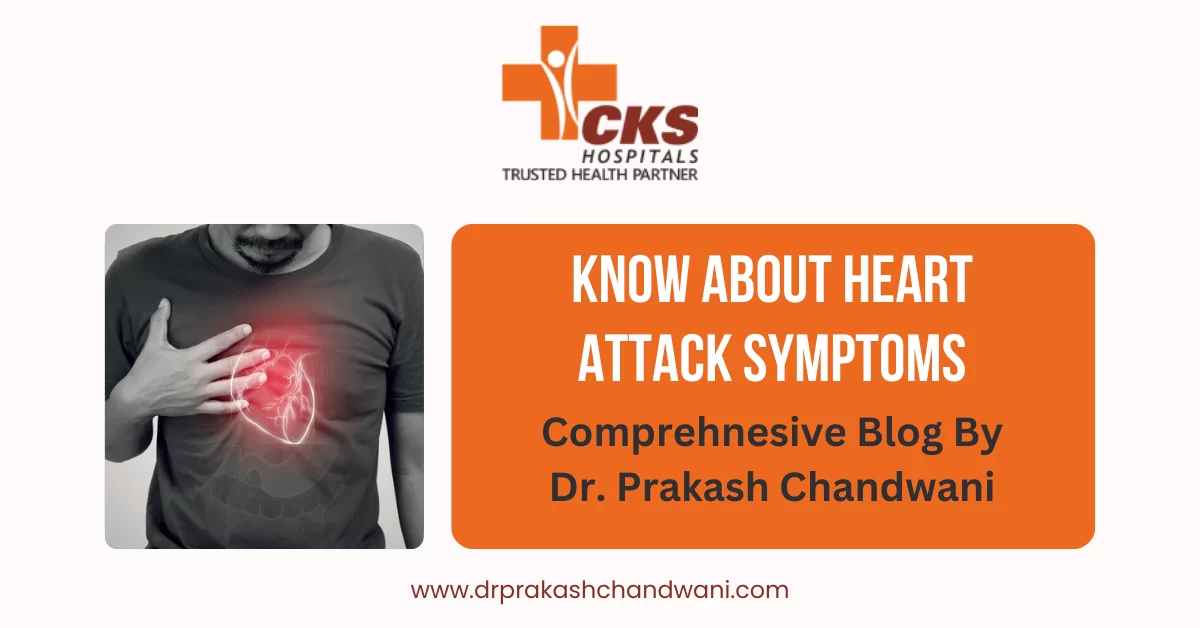

Know About Heart Attack Symptoms
Heart Attack Symptoms: The heart, a vital organ that tirelessly pumps blood throughout our bodies, is susceptible to various health issues, with heart attacks being one of the most serious. Recognizing the symptoms of a heart attack is crucial for timely intervention and potentially life-saving measures.
In this blog post, we will delve into the common heart attack symptoms, shedding light on the importance of prompt action and seeking medical attention.
6 Common Heart Attack Symptoms
1. Chest Pain: A Telltale Sign
Perhaps the most widely recognized symptom of a heart attack is chest pain. This discomfort is often described as a feeling of pressure, tightness, or squeezing in the chest. The pain may radiate to the arms, neck, jaw, or back. It’s important to note that chest pain during a heart attack is not always severe; it can manifest as mild to intense discomfort. Ignoring chest pain can be perilous, as it is a red flag that demands immediate attention.
2. Stiffness: A Warning Signal
Alongside chest pain, individuals experiencing a heart attack may feel stiffness in their chest or upper body. This sensation is often characterized by a tightening or constricting feeling, making it difficult for the person to move comfortably. The stiffness can extend to the shoulders, arms, and neck. Any unexplained stiffness in these areas, especially when accompanied by other symptoms, should not be dismissed lightly.
3. Pain in Shoulders: An Unusual Indicator
Shoulder pain is another symptom that may be associated with a heart attack. The pain can be felt in one or both shoulders and may radiate down the arms. Sometimes, individuals may mistake this symptom for muscle strain or tension. However, persistent or unexplained shoulder pain, particularly when combined with other symptoms, should raise concerns and prompt immediate medical attention.
4. Shortness of Breath: Difficulty Breathing
Shortness of breath is a common symptom during a heart attack and is often accompanied by chest discomfort. Individuals may feel as though they cannot catch their breath or that their breathing is labored. This symptom can occur with or without chest pain and is a clear indication of compromised cardiovascular function. If someone is experiencing sudden, unexplained shortness of breath, it is crucial to consider the possibility of a heart attack and seek medical help promptly.
View this post on Instagram
5. Nervousness and Sweating: Signs of Distress
Feeling unusually nervous, anxious, or sweaty without apparent cause can also be indicative of a heart attack. The body’s response to the stress on the heart may trigger a surge in adrenaline, leading to these symptoms. Profuse sweating, especially when accompanied by other warning signs, should not be ignored. While nervousness and anxiety can result from various factors, when coupled with other heart attack symptoms, they warrant immediate attention.
6. Fast Heartbeat: Racing Against Time
A rapid or irregular heartbeat, medically known as palpitations, can be a sign of a heart attack. The heart may feel like it’s racing, fluttering, or beating irregularly. While palpitations can be caused by various factors, if they occur in conjunction with other symptoms such as chest pain, shortness of breath, or sweating, it is crucial to recognize the possibility of a heart attack and seek emergency medical care promptly.
Looking for heart attack treatment in Jaipur must book an appointment with Dr. Prakash Chandwani (Best & Experienced Interventional Cardiologist in Jaipur) call at +91-7230042589.
Conclusion – Heart Attack Symptoms
Recognizing the symptoms of a heart attack is a matter of utmost importance, as it enables individuals and those around them to take swift action. Chest pain, stiffness, pain in the shoulders, shortness of breath, nervousness, sweating, and a fast heartbeat are all potential indicators of a heart attack. It is vital to understand that these symptoms can vary in intensity and may not always manifest in the same way for everyone.
If you or someone you are with experiences these symptoms, it is crucial not to dismiss them as mere discomfort or anxiety. Time is of the essence during a heart attack, and seeking prompt medical attention can significantly improve the chances of a positive outcome. Calling emergency services or visiting the nearest emergency room is the best course of action when confronted with these symptoms.
In addition to recognizing symptoms, adopting a heart-healthy lifestyle is key to preventing heart attacks. This includes maintaining a balanced diet, engaging in regular physical activity, managing stress, and avoiding tobacco use. Regular check-ups with healthcare professionals can also help in identifying and managing risk factors for heart disease.
By increasing awareness about heart attack symptoms, we can empower individuals to take charge of their cardiovascular health and, ultimately, save lives. Remember, when it comes to matters of the heart, every second counts.

